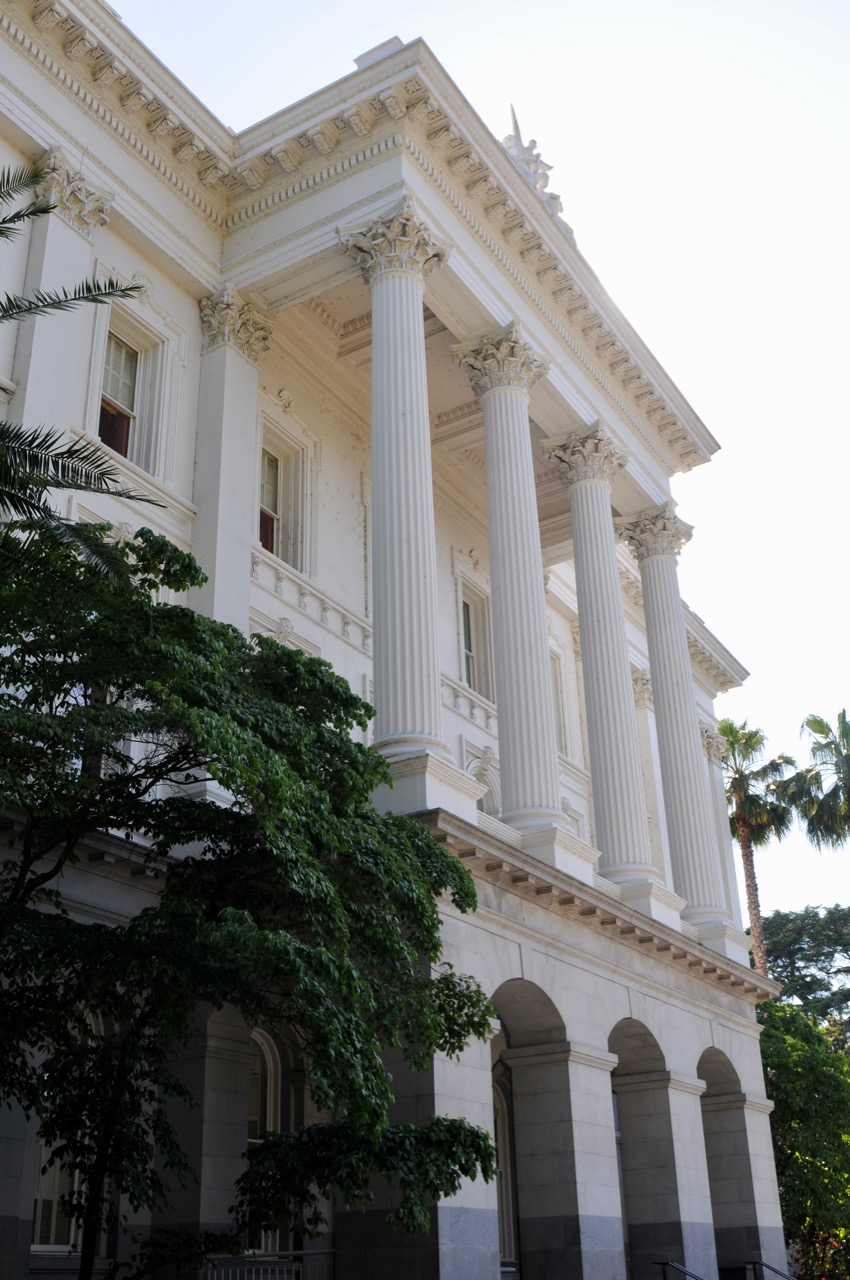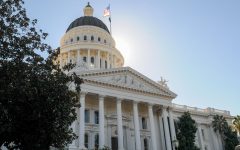
View of the campus of the University of California, Berkeley. (Photo: EQRoy, Shutterstock)
Expansion of Title IX Tramples First Amendment
New federal guidelines weaponized to curtail speech
By Martin Marks, September 6, 2022 2:30 am
Title IX, the federal law enacted to combat discrimination based on gender just recently celebrated its 50th anniversary. Enacted in 1972 Title IX of the Education Amendments protects people from discrimination based on sex in education programs or activities that receive federal financial assistance. Title IX states:
“No person in the United States shall, on the basis of sex, be excluded from participation in, be denied the benefits of, or be subjected to discrimination under any education program or activity receiving Federal financial assistance.”
Perhaps best known for its application to ensure that females receive equal footing with male counterparts when it comes to athletics in public schools, Title IX also addresses discrimination when it comes to recruitment, admissions, counseling. financial assistance, sex-based harassment and assault, treatment of pregnant and parenting students, treatment of LGBTQI+ students, discipline, single-sex education, and employment.
And in addition to some 17,600 local school districts and over 5,000 postsecondary institutions nationwide that receive federal financial assistance, Title IX also applies to other local and state educational organizations such as charter schools, for-profit schools, libraries, museums, vocational rehabilitation agencies and education agencies.
While there are no doubt some admirable intentions and results of the 50-year-old legislation, Title IX has also been a lightning rod for controversy as many institutions have used the act as a premise to enforce their own established rules governing speech and actions, which have pitted them squarely against other enumerated rights—specifically the First Amendment to the United States Constitution.
Recently, the Biden Administration’s Department of Education set forth a Fact Sheet to accompany its proposed amendments to Title IX that would appear to give cover to those institutions already curtailing speech. The Fact Sheet begins by stating:
“The Department’s proposed amendments will restore vital protections for students in our nation’s schools which were eroded by controversial regulations implemented during the previous Administration.”
It goes on to state:
“Through the proposed regulations, the Department reaffirms its core commitment to fundamental fairness for all parties; protecting freedom of speech and academic freedom; and respect for the autonomy and protections that complainants need and deserve when they come forward with a claim of sex discrimination.”
This would be the fact sheet’s only reference to Freedom of Speech, and more importantly there is no hint to just how that right would be protected in light of the following from the Dept. of Education:
“The proposed regulations would cover all forms of sex-based harassment, including unwelcome sex-based conduct that creates a hostile environment by denying or limiting a person’s ability to participate in or benefit from a school’s education program or activity.”
And with that little phrase—creating a hostile environment—The Department of Education opens the door for weaponizing Title IX to further curtail freedom of thought and speech in an educational environment.
Most of the Education Department’s expanding focus appears to center on how transgenderism and transgenders themselves are going to be addressed at publicly funded institutions. In that regard, schools have curtailed speech that they consider complicit in creating a hostile environment for transgenders by using institutional policies or falling back on the provisions of Title IX. At least two California universities have already laid the groundwork for curtailing expression with written policy. At the University of the Pacific in Stockton, the Title IX coordinator (yes, each institution accepting federal funds is required to employ one) released a university policy that stated:
“Misgendering is the intentional or unintentional use of pronouns or identifiers that are different from those used by an individual. Unintentional misgendering is usually resolved with a simple apology if someone clarifies their pronouns for you. Intentional misgendering is inconsistent with the type of community we hold ourselves out to be. We all get to determine our own gender identity and expression, but we don’t get to choose or negate someone else’s.”
The statement went on to identify “deadnaming”–a relatively new term in the transgender vernacular–which is defined as using a transitioning or transitioned individual’s previous name as a form of harassment and bullying.
In 2020, the University of California system set forth policy that also defines deadnaming and further allows students and alumni to alter names on official UC documents such as diplomas without a legal name change. This was codified in California state law with the signing of Assembly Bill 245 in 2021.
While the new Title IX guidelines set forth by the Biden administration’s Dept. of Education do not specifically require institutions to prohibit misgendering or stifle speech regarding gender ideology, there are those that fear that these new regulations will do just that, or at the very least give the typical progressive school campus cover to do so.
But what happens when speech code police on college campuses run afoul of the U.S. Constitution and its First Amendment governing freedom of speech—specifically when it comes to misgendering or refusing to employ preferred pronouns? To date, students, faculty, and staff have been subjected to censorship and other sanctions for violating campus speech codes in this regard. However, when challenged in court these punishments don’t necessarily carry the day.
In 2018 at Shawnee State University, a public institution in Ohio, a professor was sanctioned for refusing to employ a student’s preferred pronouns. Citing his First Amendment right to free speech and free exercise of religion, the professor sued. The 6th Circuit Court of Appeals backed his claims, and the university was forced to settle with the professor.
Closer to home, the 3rd District California State Court of Appeals ruled last year that parts of SB 219 governing nursing homes and skilled nursing facilities— violation of which could result in fines and/or imprisonment–were unconstitutional. Specifically, the justices took issue with the clause that reads:
“Willfully and repeatedly fail to use a resident’s preferred name or pronouns after being clearly informed of the preferred name or pronouns.”
The unanimous opinion reads in part:
“The penalty for referring to patients in a manner inconsistent with their identities “restricts more speech than is necessary to achieve the government’s compelling interest in eliminating discrimination.”
“We recognize that misgendering may be disrespectful, discourteous, and insulting, and used as an inartful way to express an ideological disagreement with another person’s expressed gender identity, but the First Amendment does not protect only speech that inoffensively and artfully articulates a person’s point of view.”
The Court’s opinion seems unambiguous here and certainly begs the question, if this applies to long term care and skilled nursing facilities, how could it not apply to other institutions such as those governed by Title IX?
The expanding language of Title IX, and more importantly the expanding use of the act to limit if not stifle speech appears to be on a collision course with the First Amendment. This will all no doubt need to be sorted out in a court near you—-or perhaps a court some three thousand miles away in Washington. That particular court as of late seemingly holds the tenets of our constitution in high, if not supreme regard.
- Why Is National Public Radio Still Publicly Funded? - April 24, 2024
- Dodgers’ Ohtani Embroiled in Gambling Scandal - March 22, 2024
- Overwhelming Migrant Ingress Shifts To California - March 5, 2024





I really appreciate the details you shared with me about Expansion of Title IX Tramples First Amendment. thanks for sharing
I really loved this article. Hope you will post more informational articles like this. Thank you so much.